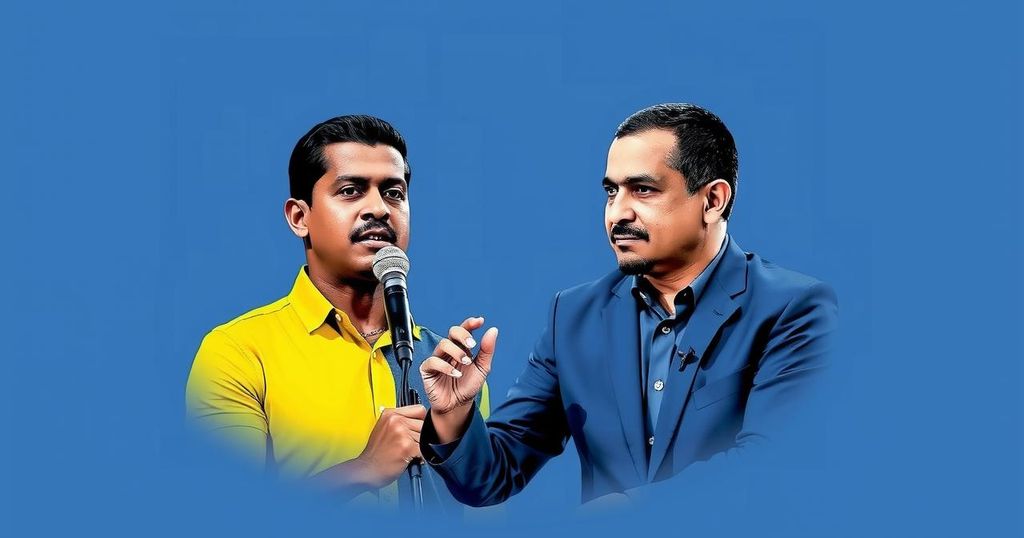Biden Administration Sanctions Venezuelan Officials Following Disputed Election
The Biden administration imposed sanctions on 21 Venezuelan officials aligned with President Maduro following a disputed presidential election in July 2023. The action targets high-ranking officials accused of repressing dissent after the electoral process. Despite the sanctions, critics question their overall effectiveness, as key regime figures remain in power. The Venezuelan government is exploring legislation to label international sanctions as crimes against humanity, while protests against the election results continue.
On Wednesday, the administration of President Joe Biden announced sanctions against 21 Venezuelan officials allied with President Nicolás Maduro following the disputed presidential election held in July. These sanctions, which were issued by the Department of the Treasury, specifically target high-ranking officials within Venezuela’s corrections and intelligence sectors as well as the minister responsible for Maduro’s presidential office, accusing them of involvement in repression against dissent following the electoral process. This action adds to an ongoing list of sanctions that previously included prominent judicial and governmental figures in Venezuela who have faced similar punitive measures for their actions.
Despite these new sanctions aimed at Maduro’s regime, the effectiveness of such actions remains uncertain, as previous sanctions have not led to significant changes in the leadership structure of the Venezuelan government. Bradley T. Smith, Acting Under Secretary of the Treasury for Terrorism and Financial Intelligence, remarked, “Maduro and his representatives’ repressive actions in the wake of the Venezuelan presidential election are a desperate attempt to silence the voices of its citizens.” The Biden administration continues to frame these actions as part of its commitment to uphold democratic practices and free speech in the region.
These recent sanctions build upon earlier measures taken against Maduro’s inner circle, which included actions against 16 additional high-ranking officials accused of obstructing fair electoral processes and violating human rights. The United States has supplemented financial sanctions with travel restrictions, targeting Maduro’s closest allies in an effort to isolate them. However, critics have raised concerns about the efficacy of such measures, noting that key figures in the regime have remained entrenched in power despite years of sanctions.
In response to international sanctions, Venezuelan lawmakers are considering legislation that could classify these sanctions as crimes against humanity, aimed at prosecuting anyone who supports such actions. The sanctions were announced shortly after the Biden administration recognized Venezuelan opposition candidate Edmundo González as the “president-elect,” following Maduro’s self-proclamation of victory in the contentious elections. The absence of officially released election results has contributed to widespread protests and unrest in the country, as demonstrators call for accountability and transparency regarding the alleged election fraud.
The sanctions imposed by the Biden administration underscore the ongoing political turmoil in Venezuela, following the disputed presidential election of July 2023. President Maduro has faced allegations of electoral fraud and suppression of dissent, which have drawn widespread international condemnation. The response from the U.S. aims to pressure Maduro’s regime while supporting the Venezuelan opposition, who claim significant electoral victories. The historical context of sanctions on Venezuela reveals a persistent effort by U.S. administrations to challenge the Maduro government’s authority, although critics argue these measures have not led to substantial change within the regime.
In summary, the Biden administration’s recent sanctions against Venezuelan officials signal a continued commitment to addressing perceived injustices within the Maduro regime following a controversial election. Despite repeated sanctions aimed at top figures within the government, their effectiveness remains questionable as regime members hold firm power over Venezuela’s political landscape. The situation is further complicated by counter-legislative actions taken by Venezuelan lawmakers, highlighting the contentious nature of international relations concerning governance in Venezuela. Additionally, the ongoing protests signal a population increasingly vocal against perceived electoral malpractice, contributing to the political unrest in the nation.
Original Source: www.newsweek.com




Post Comment